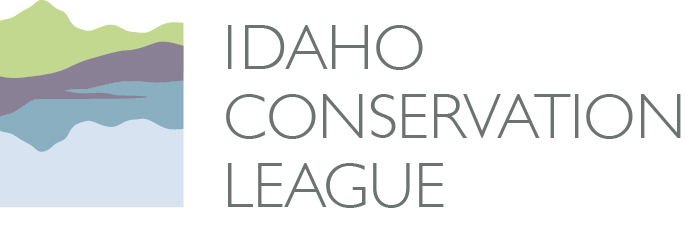For Immediate Release: Thursday, August 15, 2024
Contacts:
Will Tiedemann, Regulatory Conservation Associate, (208) 345-6933 x 228
Abby Urbanek, Communications & Marketing Manager, (208) 345-6933 x 214
Report finds 58% of Idaho’s sewage treatment plants are violating pollution discharge limits, potentially harming water quality and public health
BOISE, ID – The Idaho Conservation League’s (ICL) seventh annual study of Idaho’s wastewater treatment plants found in 2023, more than 58% of all sewage facilities in Idaho failed to comply with Clean Water Act standards for the discharge of harmful bacteria, chemicals, toxic metals, and other substances. During 2023, there were 458 violations of the Clean Water Act among wastewater treatment plants in Idaho.
Municipal wastewater treatment plants are on the front line for protecting water quality and human health. Properly built and operated, well-maintained sewage treatment plants are critical for keeping our rivers and lakes fishable, swimmable, and safe. Yet, the majority of these plants are violating their pollution discharge limits.
“Statewide the overall picture is troublesome, with just 42% of treatment facilities operating last year without any violations,” said Will Tiedemann, Regulatory Conservation Associate with ICL. “This is an abysmal rate for something so essential as clean water, and is unacceptable to be coming from facilities that are meant to protect us.”
There is a significant range in the performance of facilities across Idaho. In 2023, some facilities reported zero violations while others reported upwards of 40 or 50 violations.
Other findings:
- 11 of the 112 sewage treatment plants spread across Idaho were responsible for more than half (approximately 63%) of all violations reported statewide. All 11 of these worst-performing facilities were located in relatively small rural communities; a similar trend was also identified in ICL’s 2022 assessment.
- 3 facilities (Preston, Driggs, and Parma) accounted for approximately 32% of all violations in 2023.
- City of Preston WWTP: While only having 9 effluent violations in 2022, the City of Preston’s WWTP jumped to 51 violations in 2023. Throughout 2023, the facility violated annual, monthly, and weekly pollutant limits. Ammonia/Nitrogen was the primary pollutant, but BOD and TSS were also an issue.
- City of Driggs WWTP: The Driggs wastewater treatment facility had 54 violations in 2023 (a slight increase from 53 violations in 2022). The facility also discharged approximately 36,000 pounds of ammonia over limits in both 2022 and 2023.
- City of Parma WWTP: This facility has had significant effluent violations going back to 2021, including BOD, suspended solids, E. Coli, pH, residual chlorine, and phosphorus. Following a lawsuit filed by Idaho DEQ, in January 2024, the City of Parma agreed to a settlement that assessed a $66,900 penalty for 92 separate violations stemming all the way back to 2018. The agreement also included requirements to update plans that will ultimately successfully implement facility improvements.
- 47 cities or towns across the state reported no discharge violations in 2023.
- Many treatment facilities—in particular, ones serving the municipalities of Nez Perce, Kuna, Mullan, Emida, Smelterville, and Craigmont—made strong improvements to reduce or even eliminate their discharge violations from 2022 to 2023. The City of Jerome and Kuna’s wastewater treatment plants were both featured in last year’s WWTP report for significant effluent violations and loads over limits, but both have made significant progress since 2022.
ICL issued its first Wastewater Treatment Plant report in 2017. The annual report compiles and examines discharge permit violations for every Idaho facility, and reports on their record of meeting legal standards pursuant to the Clean Water Act. ICL has presented these reports at meetings and conferences to mayors, city officials, regulating agencies, and the general public to bring attention to these important issues.
Along with reviewing violations from Idaho’s wastewater treatment plants, ICL’s report provides concrete suggestions for ways to engage local leaders to act to improve sewage treatment plants with violations.
“This report serves as a springboard for advocacy when it comes to clean water, highlighting the facilities that are doing their job and those that need to change,” concluded Tiedemann. “Every Idahoan deserves clean water. We encourage Idahoans and local leaders who live in areas with facilities that have violations to act now by contacting their city or local government to learn more, provide feedback, and demand action.”
ICL will continue to track each facility’s compliance, particularly those with poor track records. Review ICL’s 2024 Wastewater Treatment Plant Report in its entirety by clicking here.
###
